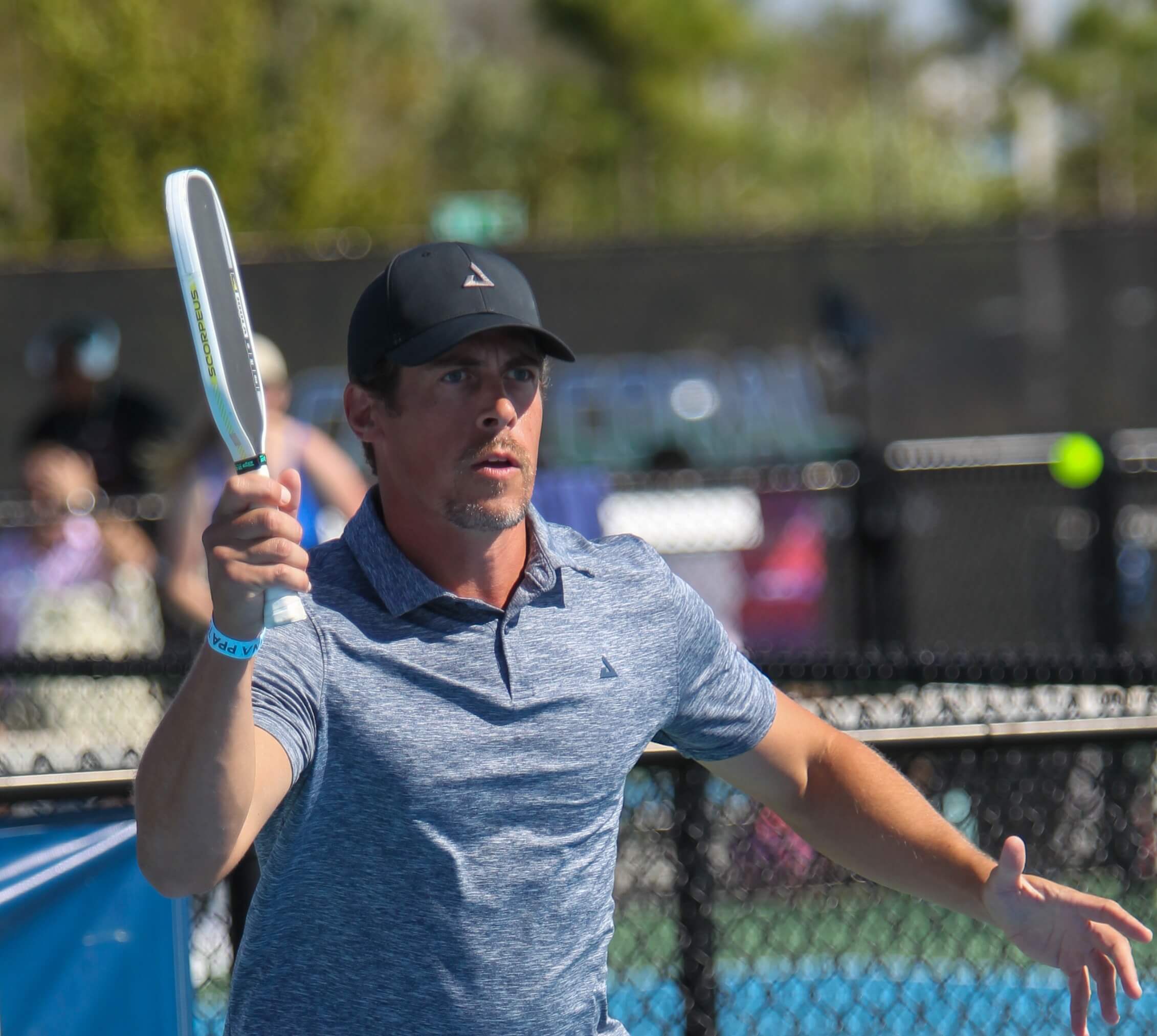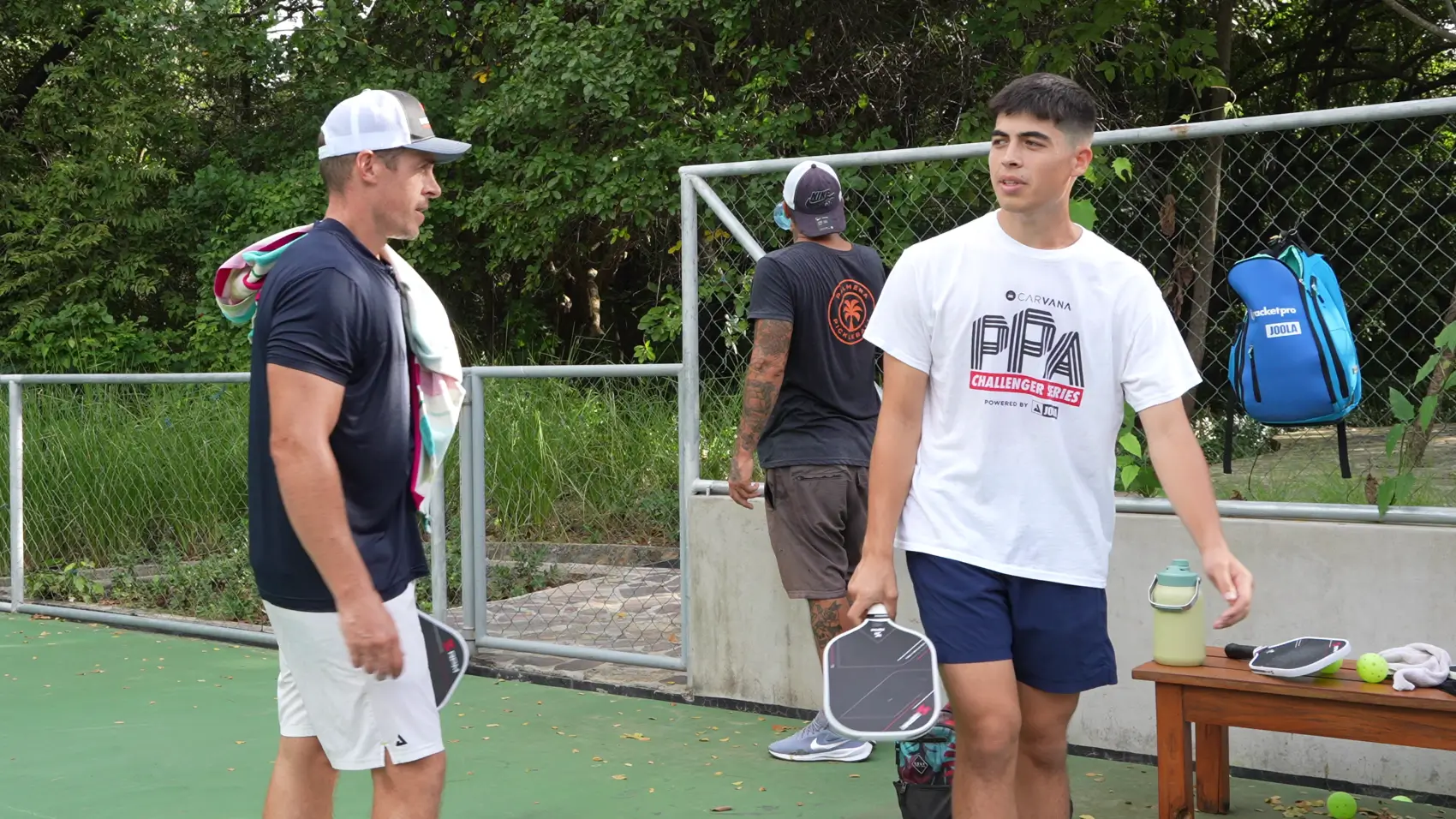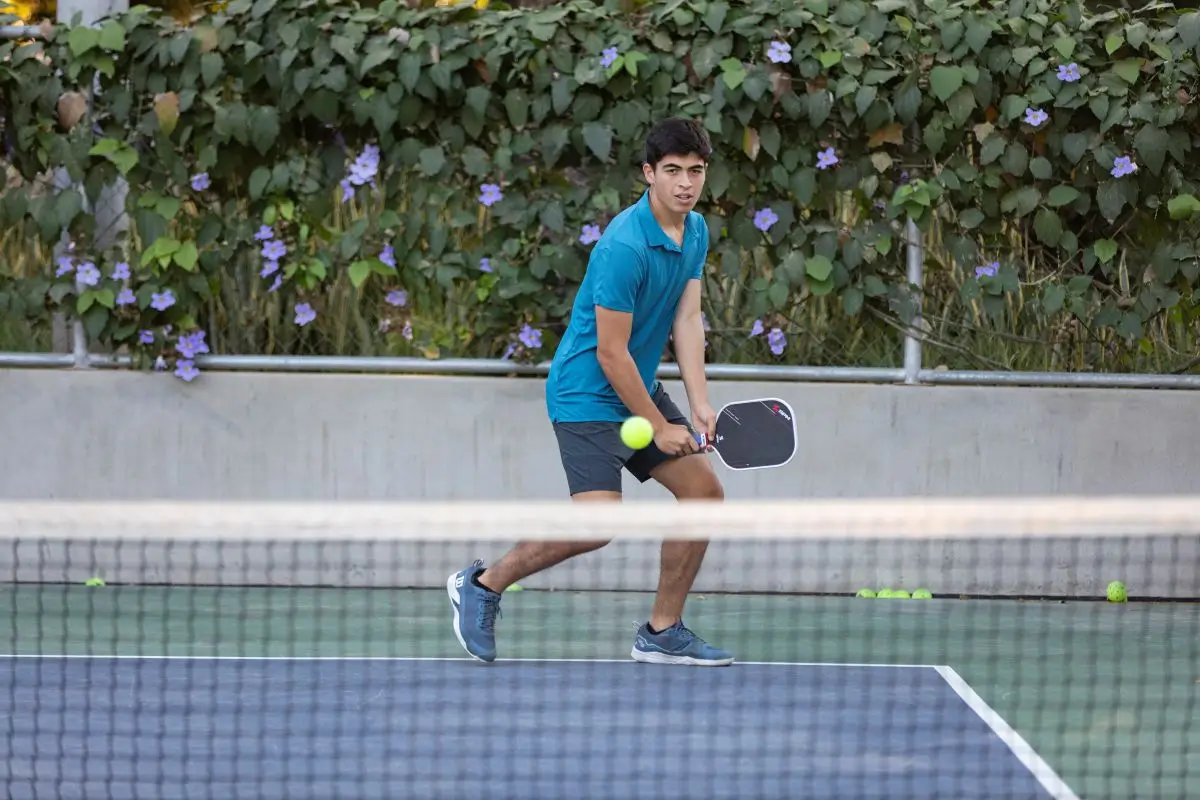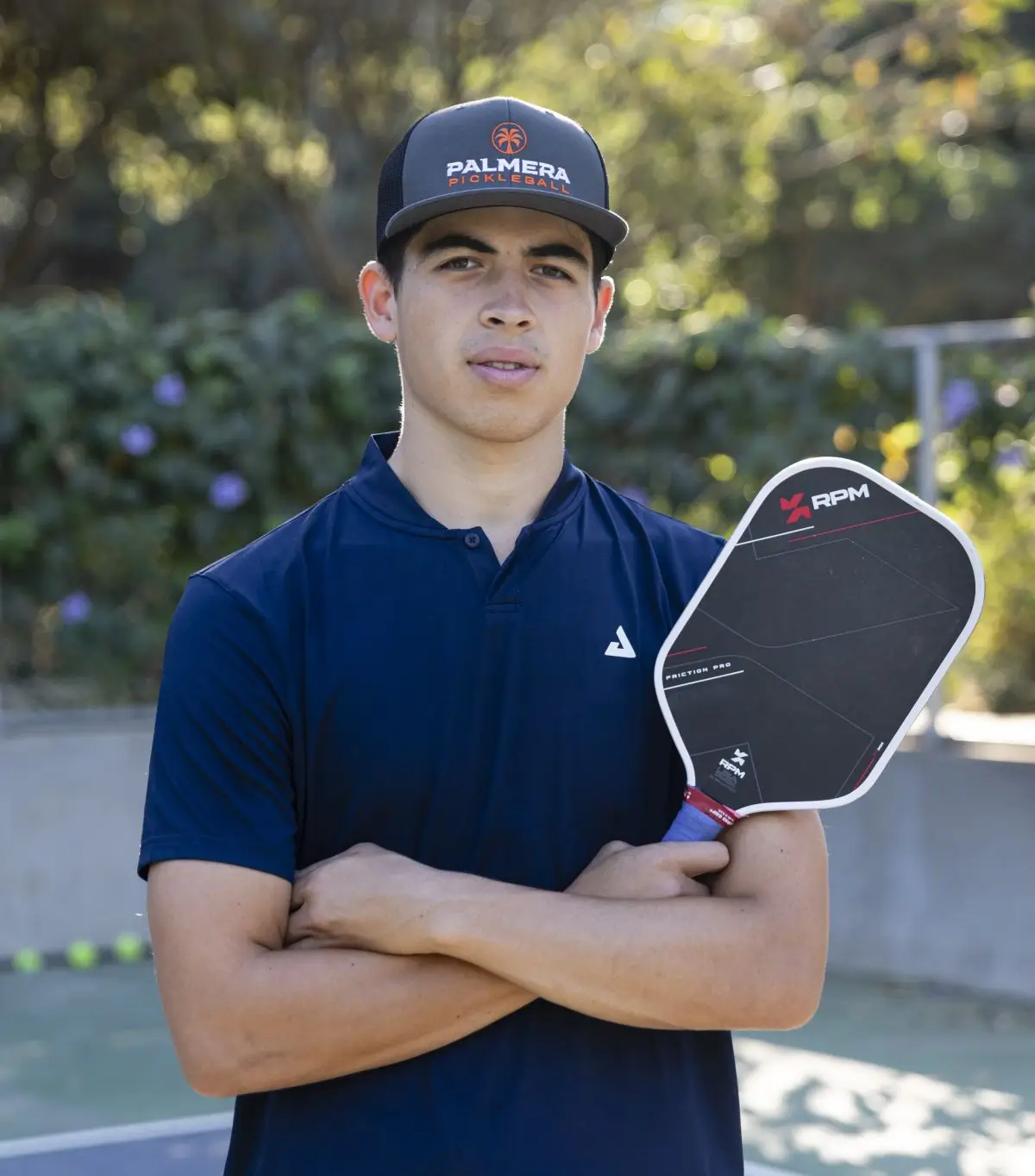Stop Coaching Mid-Game: How to Be a Better Pickleball Doubles Partner
Mid-game coaching in pickleball might seem helpful, but it often backfires—disrupting rhythm, adding pressure, and straining team dynamics. Discover ways to get your partner into a flow state, and optimize for the win even when your partner is struggling.
.avif)
In the heat of a competitive doubles match, a subtle yet disruptive habit can creep in: one partner—usually the stronger or more experienced player—begins coaching the other mid-game. Or worse, they let frustration show. At first glance, it might seem like an effort to support the team. But more often than not, it has the opposite effect: it destabilizes the dynamic, amplifies stress, and chips away at team chemistry.
To be fair, there are times when coaching during play is appropriate—when all four players agree it’s a drill session, or when someone is new to the sport and welcomes guidance. In those moments, coaching is collaborative and developmental, not competitive.
But in many recreational games with a competitive edge, I’ve seen mid-game coaching show up uninvited. A player starts offering tips between points or mid-rally, thinking they’re helping. In reality, it often adds pressure, undermines confidence, and turns what should be an enjoyable, flowing partnership into a tense, uncomfortable experience.
Nothing kills instinct faster than unsolicited mid-game advice.
The Psychology of Mid-Game Coaching in Doubles Pickleball
I’ve experienced this from both sides—as the one trying to offer help and the one on the receiving end of it. That perspective has helped me understand why, more often than not, coaching in the middle of a pickleball game yields negative returns.
Coaching Kills Intuition and Triggers Overthinking
Competitive pickleball is fast, fluid, and instinctual. Players must rely on muscle memory, pattern recognition, and the rhythm of the rally. When a teammate starts coaching in the middle of a game, it pulls the player’s mind out of that intuitive space and throws it into over-analysis.
Suddenly, they’re no longer reacting—they're thinking. They hesitate instead of flowing. The game feels heavier. Movements become stilted. The internal monologue goes from "Just play" to "What did they say about my drop shot again?" and that’s a recipe for breakdown.
As highlighted in The Inner Game of Tennis, we perform at our highest level when Self 2—the intuitive, instinctual part of us—is free to operate without interference. Mid-game coaching disrupts this by activating Self 1—the analytical, self-critical voice that leads to overthinking and tension.
Coaching Undermines Confidence Without Meaning To
Even the most well-intentioned mid-game advice can have a corrosive subtext: “You’re not enough right now.”
For a player already struggling, that message lands like a dagger. The Self 1 voice in their head that might be whispering doubts now has external confirmation. What was once an internal struggle becomes an interpersonal one.
The player begins to second-guess not just their skills but their right to be on the court. Confidence, already on shaky ground, starts to collapse entirely. As we explored in training the competitive mindset, confidence is exactly what's needed if we are to silence our inner critic so that we can perform at our best in the heat of the moment.
It Turns a Partnership Into a Hierarchy
In doubles, success comes from synergy—two players locked in as co-creators of momentum. Coaching mid-match short-circuits this by introducing a hierarchy.
Now one partner is in control and the other is being managed. The equality vanishes. The joy of shared competition fades, replaced by a sense of being judged or micromanaged.
The dynamic becomes lopsided. The struggling player feels smaller, more self-conscious, and more likely to implode.
It Breaks Flow State and Disrupts Team Rhythm
Momentum is everything in doubles. A team in flow can punch well above its weight. But that flow is fragile.
Mid-game coaching introduces an interruption. It breaks concentration. It makes the struggling player pause mentally, just long enough to derail rhythm.
Instead of staying loose and present, they begin trying to consciously "correct" while still playing. This usually results in robotic, unnatural mechanics that bleed all creativity and joy from the game. The flow state evaporates.
It Can Breed Resentment and Silent Friction
If a player is already battling frustration or self-doubt, mid-game coaching doesn’t feel helpful—it feels patronizing. The stronger player might believe they’re being helpful, but to the other, it can feel like criticism wrapped in condescension.
As tension grows, communication breaks down. Frustration festers. Instead of bonding through adversity, the players drift apart emotionally. The sense of partnership dissolves—and so does the team's chance at recovery.
What Great Doubles Partners Do Instead
So how can you be a great partner—one that people want to play with, rally behind, and win alongside? It comes down to the energy you bring, the way you carry yourself, and how you support your teammate when it matters most.
At the highest level, it’s well understood: the moment negativity creeps in, performance begins to unravel. Positive reinforcement isn’t just good sportsmanship—it’s essential to winning.
Here's what makes the difference:
Let Your Performance Lead the Way
Raise your own level—without a lecture. Show composure, consistency, and quiet confidence. Let your performance be the stabilizer.
Sometimes just playing one or two inspired points can flip the emotional script. Your energy becomes the thing they anchor to, rather than your words.
Use Encouragement Instead of Advice to Help Your Partner Break the Loop of Self-Doubt
If your partner is struggling, chances are they already know it—they don’t need it broadcast to the court. Instead of pointing it out, focus on helping them shift into a Self-2 flow state through affirmations, not instructions. A well-timed, "I love the aggression! Let's keep going," can be far more powerful than any technical advice.
Use encouragement to loosen their grip on fear. Praise effort and bravery. Lean into humor to lighten the mood. A smile or laugh can be the pressure valve that resets the whole vibe.
Your job isn't to fix them. Redirect their attention from the story in their head to the action in front of them.
Get them moving loose and re-engaged with the moment. Eye contact. A fist bump. A quick reset breath. Small gestures that signal: “We’re in this together.”
Watch any pro-level gender or mixed doubles match, and you'll notice a powerful ritual: paddle taps between points. These happen consistently—even after glaring mistakes. In fact, when one player goes through a rough patch, their partner often responds not with critique or subtle signs of frustration, but with even more encouragement—urging them to stay aggressive and keep trusting their game.
At the highest level, it’s well understood: the moment negativity creeps in, performance begins to unravel. Positive reinforcement isn’t just good sportsmanship—it’s essential to winning.
Final Word: Mid-Game Coaching in Pickleball is a Mental Game Killer
The moment a player feels they’re being coached, they stop feeling like a teammate and start feeling like a project. And when a competitive match starts to feel like a performance review, confidence takes the biggest hit.
The strongest pickleball partnerships don’t thrive on constant instruction—they thrive on trust, rhythm, and mutual belief. It’s not about having perfect execution; it’s about having each other’s back when the pressure rises so that you can recover from lapses quickly.
Save the coaching and critique for later—if it’s needed at all. In the heat of the match, your only job is to be a steady, supportive partner.






